Vietnam and Indonesia share experience to develop eco-industrial park
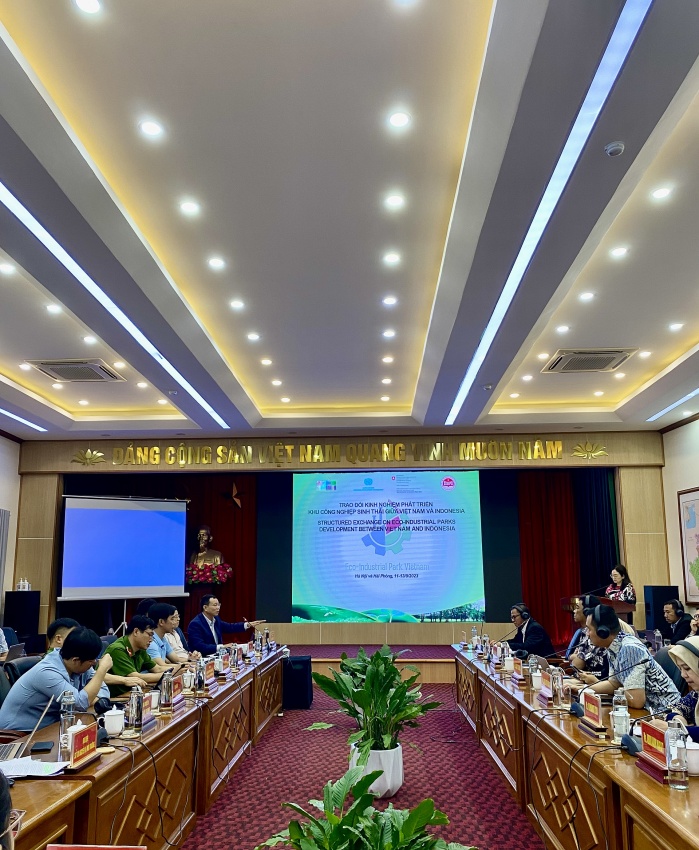 |
From September 11 to 13, the Ministry of Planning and Investment (MPI), in collaboration with the GEIPP, the United Nations Industrial Development Organization (UNIDO), Haiphong Economic Zones Management Authority (HEZA), and industrial real estate developers, organised a chain of workshops to exchange information between the two countries.
Speaking at the workshop organised in Hanoi, Le Thanh Quan, director of the MPI's Economic Zones Management Department said, "Vietnam and Indonesia are the two countries in Southeast Asia under the GEIPP. Thanks to the support of the Swiss State Secretariat for Economic Affairs (SECO), the two parties have made initial achievements in transferring from traditional IPs to eco-IPs. Thus, this chain of workshops is an opportunity for the MPI to discuss Indonesia’s experience of the success and the challenges during the process of developing this ecological model."
To help the delegation from Indonesia, which included 15 representatives from the Ministry of Industry and Trade and Indonesian real estate developers, the organising board took them to Haiphong to work with the HEZA and visited Deep C Industrial Zones and Nam Cau Kien IP.
 |
| Bui Ngoc Hai, deputy director of HEZA |
Bui Ngoc Hai, deputy director of HEZA said, “Developing eco-IPs is an inevitable trend. Nowadays, we consider waste as a resource. Promoting the development of IPs in an ecological direction will contribute significantly to the efforts to respond to climate change, mobilise resources from the private sector for green industrial solutions, ensure energy security, and demonstrate the political determination of the Vietnamese government in implementing its sustainable development commitments."
“Policymakers, including relevant ministries, are completing different standard frameworks to recycle resources, creating a circular production model. In addition, industrial real estate developers in Haiphong such as Deep C and Shinec JSC are striving to create symbiotic chains,” he added.
However, Hai confirmed that the construction of eco-IPs in the city has yet to catch up with the requirements, thus HEZA has asked the GEIPP and the Indonesian delegation to make comments and support the city with the completion of the model.
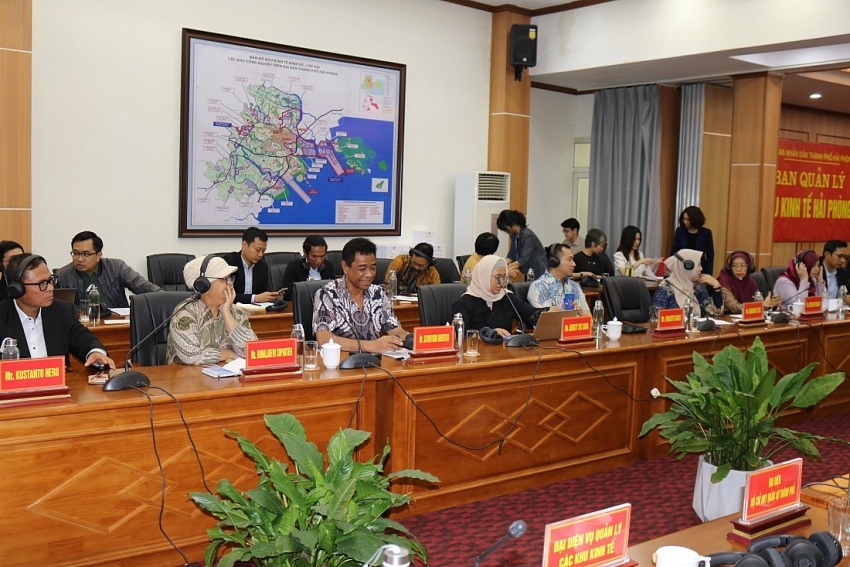 |
| The delegation from Indonesia |
Kustanto Heru, director of the Department of Industry, under the Indonesian Ministry of Industry said, “The development of the ecological industrial model faces many obstacles, especially the conversion from traditional IP frameworks. These conversions require large financial resources to change operating infrastructure and transform all production and business activities to meet green criteria. At the same time, support must be received from all tenants operating in the same IP system to create a chain of circular economic activities.”
"The mechanism for monitoring and managing eco-IPs also requires comprehensiveness to ensure that investors implement their commitments, including optimising waste treatment, using clean energy, and ensuring that all output factors are truly environmentally friendly. Industrial real estate developers in Indonesia also face challenges in demonstrating the efficiency of ecologically oriented operations and gaining the certificates they need to enjoy the incentives,” Heru said.
The GEIPP is implemented by UNIDO and funded by the government of Switzerland through SECO. Between 2015 and 2019, the MPI, UNIDO, SECO, and other donors worked together to pilot eco-IP models in Ninh Binh, Danang, and Can Tho.
As a result, 72 businesses implemented more than 900 energy-saving and clean production solutions, which helped them to save $3.3 million and simultaneously cut 32 kilotonnes of CO2 annually.
Over the 2020-2024 period, the Swiss government is continuing to help IPs in Ho Chi Minh City, Haiphong, Dong Nai, Can Tho, and Danang to convert into eco-IPs following an international framework.
To date, almost 300 solutions for resource efficiency usage and cleaner production solutions have been proposed for 37 enterprises in Dinh Vu and Deep C IZs in Haiphong, Hiep Phuoc in Ho Chi Minh City, and Amata in Dong Nai.
These solutions are expected to save 4.4 million kilowatt hours of electricity and 20,800 cubic metres of water per year. In addition, it is expected to save $800,000 annually and reduce the emission of 87,000 tonnes of CO2, contributing to optimising the efficiency of resource usage in IPs and urban areas on the route to a circular economy.
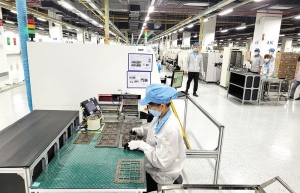 | Illustrating the critical need for top eco-industrial parks Vietnam is leaning towards international conventions when it comes to expanding its eco-industrial park strategy. Florian J. Beranek, lead expert of Responsible Business Development at the UN Industrial Development Organization, explains what this looks like, and how developers can be encouraged to go greener. |
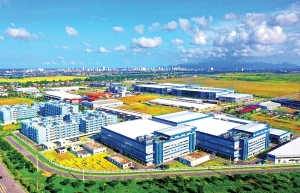 | Localities keen to implement advanced industrial parks Localities nationwide are eager to accelerate the construction of industrial parks to welcome new foreign investment capital inflows in 2023. |
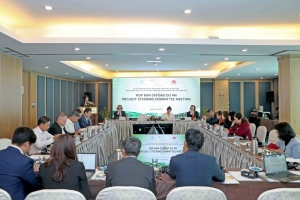 | Vietnam to promote eco-industrial parks with international partners The Steering Committee on the Development of Eco-industrial Parks in Vietnam, organised a meeting yesterday to discuss last year's results and set a course for the following two years of the scheme. |
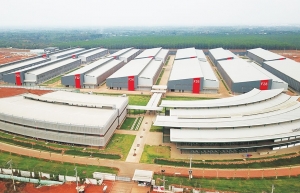 | Private sector urged to enter eco-IP arena Authorities have been urged to foster participation of the private sector to speed up the creation of eco-industrial parks, contributing to the government's green growth strategy. |
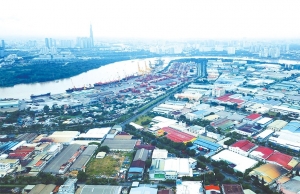 | Vietnam taking stock of industrial park capacities Many localities want to expand high-tech industrial parks to resolve the overload of existing parks and simultaneously welcome new high-quality capital. |
What the stars mean:
★ Poor ★ ★ Promising ★★★ Good ★★★★ Very good ★★★★★ Exceptional
Related Contents
Latest News
More News
- An Phat 5 Industrial Park targets ESG-driven investors in Hai Phong (January 26, 2026 | 08:30)
- Decree opens incentives for green urban development (January 24, 2026 | 11:18)
- Public investment is reshaping real estate’s role in Vietnam (January 21, 2026 | 10:04)
- Ho Chi Minh City seeks investor to revive Binh Quoi–Thanh Da project (January 19, 2026 | 11:58)
- Sun Group launches construction of Rach Chiec sports complex (January 16, 2026 | 16:17)
- CEO Group breaks ground on first industrial park in Haiphong Free Trade Zone (January 15, 2026 | 15:47)
- BRIGHTPARK Entertainment Complex opens in Ninh Binh (January 12, 2026 | 14:27)
- Ho Chi Minh City's industrial parks top $5.3 billion investment in 2025 (January 06, 2026 | 08:38)
- Why Vietnam must build a global strategy for its construction industry (December 31, 2025 | 18:57)
- Housing operations must be effective (December 29, 2025 | 10:00)

 Tag:
Tag:




















 Mobile Version
Mobile Version